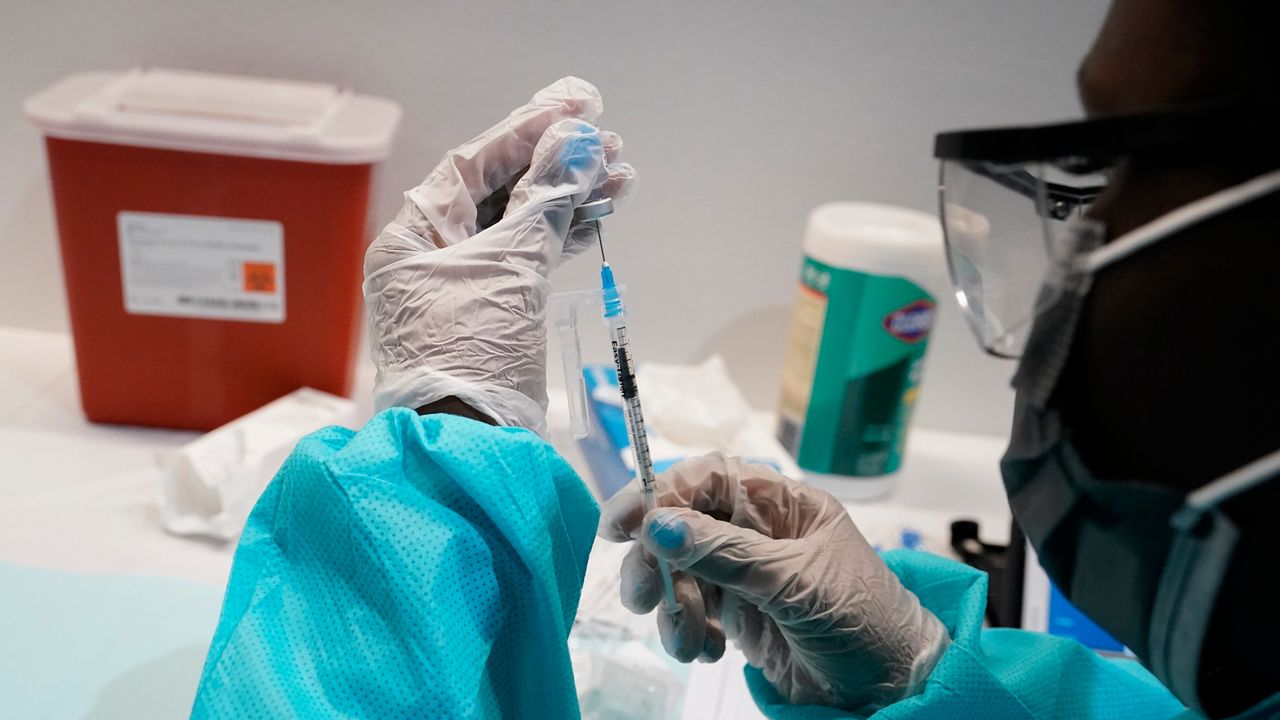Pfizer and BioNTech said Thursday they have asked the Food and Drug Administration to grant emergency approval to administer its COVID-19 vaccine to children ages 5 to 11.
What You Need To Know
- Pifzer and BioNTech said Thursday they have asked the FDA to grant emergency approval to administer its COVID-19 vaccine to children ages 5 to 11
- Now the FDA will have to decide if there’s enough evidence that the shots are safe and will work for younger children like they do for teens and adults
- An independent expert panel will publicly debate the evidence on Oct. 26
- The companies announced last month that their vaccine is safe and generated "robust neutralizing antibody responses" in that age group
The companies announced last month that their vaccine is safe and generated "robust neutralizing antibody responses" in that age group. They formally submitted their data to the FDA on Sept. 28.
The Pfizer-BioNTech vaccine received emergency use authorization for people 16 and older in December and was given full FDA approval in August. The vaccine has been authorized for emergency use in 12- to 15-year-olds since May.
Now the FDA will have to decide if there’s enough evidence that the shots are safe and will work for younger children like they do for teens and adults. An independent expert panel will publicly debate the evidence on Oct. 26.
If approved, the Pfizer-BioNTech vaccine would be the first to be available to children under 12 in the U.S. and make more than 28 million additional Americans eligible to be protected from the virus.
Pfizer and BioNTech said their clinical trial has shown that the lower dosage of the vaccine in 5- to 11-year-olds generates antibody levels just as strong as in teenagers and young adults after the second dose.
Side effects — such as fever, achiness or sore arms — were similar to those observed in people ages 16-25.
Many parents and pediatricians are clamoring for protection for children younger than 12. Not only can youngsters sometimes get seriously ill, but keeping them in school can be a challenge with the coronavirus still raging in poorly vaccinated communities.
While kids are at lower risk of severe illness or death than older people, COVID-19 does sometimes kill children and cases in youngsters have skyrocketed as the extra-contagious delta variant has swept through the country.
“It makes me very happy that I am helping other kids get the vaccine,” said Sebastian Prybol, 8, of Raleigh, North Carolina. He is enrolled in Pfizer’s study at Duke University and doesn’t yet know if he received the vaccine or dummy shots.
“We do want to make sure that it is absolutely safe for them,” said Sebastian’s mother, Britni Prybol. But she said she will be “overjoyed” if the FDA clears the vaccine.
If the FDA authorizes emergency use of the kid-sized doses, there’s another hurdle before vaccinations in this age group can begin. Advisers to the Centers for Disease Control and Prevention will decide whether to recommend the shots for youngsters, and the CDC will make a final decision.



